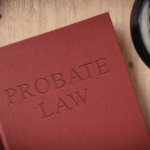
Estate planning has always been a complex process, and recent changes in Massachusetts tax laws have added new layers of intricacy. Understanding the implications of these changes is crucial for anyone planning their estate in the state. In this article, we will explore the new death tax regulations in Massachusetts and provide insights to help you make informed decisions for your estate and your loved ones.
Massachusetts Estate Tax Changes
As of October 4th 2023, Massachusetts has implemented significant modifications to its estate tax laws. The state has raised the threshold for taxable estates, making it essential for residents to reassess their estate plans. Here are the key points you should be aware of:
1) Increased Exemption Threshold
Previously, Massachusetts imposed an estate tax on estates valued at $1 million or more. The recent changes have raised this threshold to $ 2 million, allowing estates valued under the new limit to pass to heirs tax-free. Understanding the current exemption limit is fundamental to effective estate planning.
2) Exemption Amount and Tax Rates
Familiarize yourself with the new exemption amount and corresponding tax rates. Knowing the exact percentage your estate will be taxed over the exemption limit is vital for accurate financial planning. Understanding the tiered structure of these rates can help you estimate your potential tax liability.
3) Consider Trusts and Gifting Strategies
Given the changes in the exemption threshold, reviewing your existing trusts and gifting strategies is advisable. Trusts can be instrumental in minimizing estate taxes, and gifting assets to heirs or setting up irrevocable trusts before reaching the exemption limit can protect your estate from higher tax rates. In martial situations, the combined exemption is $4 million and therefore with proactive strategic planning of at least $4 million can be passed to beneficiaries without any tax.
4) Evaluate Retirement Accounts
Certain retirement accounts, such as IRAs and 401(k)s, can be subject to estate taxes. Explore options like converting traditional IRAs to Roth IRAs, which could mitigate tax implications for your heirs. Understanding the rules and implications surrounding retirement accounts is crucial in the context of estate planning.
5) Stay Informed and Seek Professional Guidance
Tax laws are intricate and subject to change. It is vital to stay updated with the latest developments and seek guidance from experienced estate planning professionals. A knowledgeable attorney or financial advisor can help you navigate the complexities of the new death tax regulations, ensuring your estate plan aligns with the current laws and protects your assets effectively.
Planning for the Future
Estate planning is a proactive and ongoing process. With the recent changes in Massachusetts estate tax laws, it is more important than ever to review your estate plan, considering the new exemption limits and tax rates. By staying informed, understanding the implications, and working closely with professionals, you can protect your assets, minimize tax liabilities, and secure a prosperous future for your loved ones.
Every individual’s financial situation is unique. Personalized advice tailored to your circumstances is invaluable. Invest the time and effort now to plan comprehensively, ensuring your legacy is preserved and your loved ones are well taken care of in the years to come. Contact us here for a no-cost consultation.







